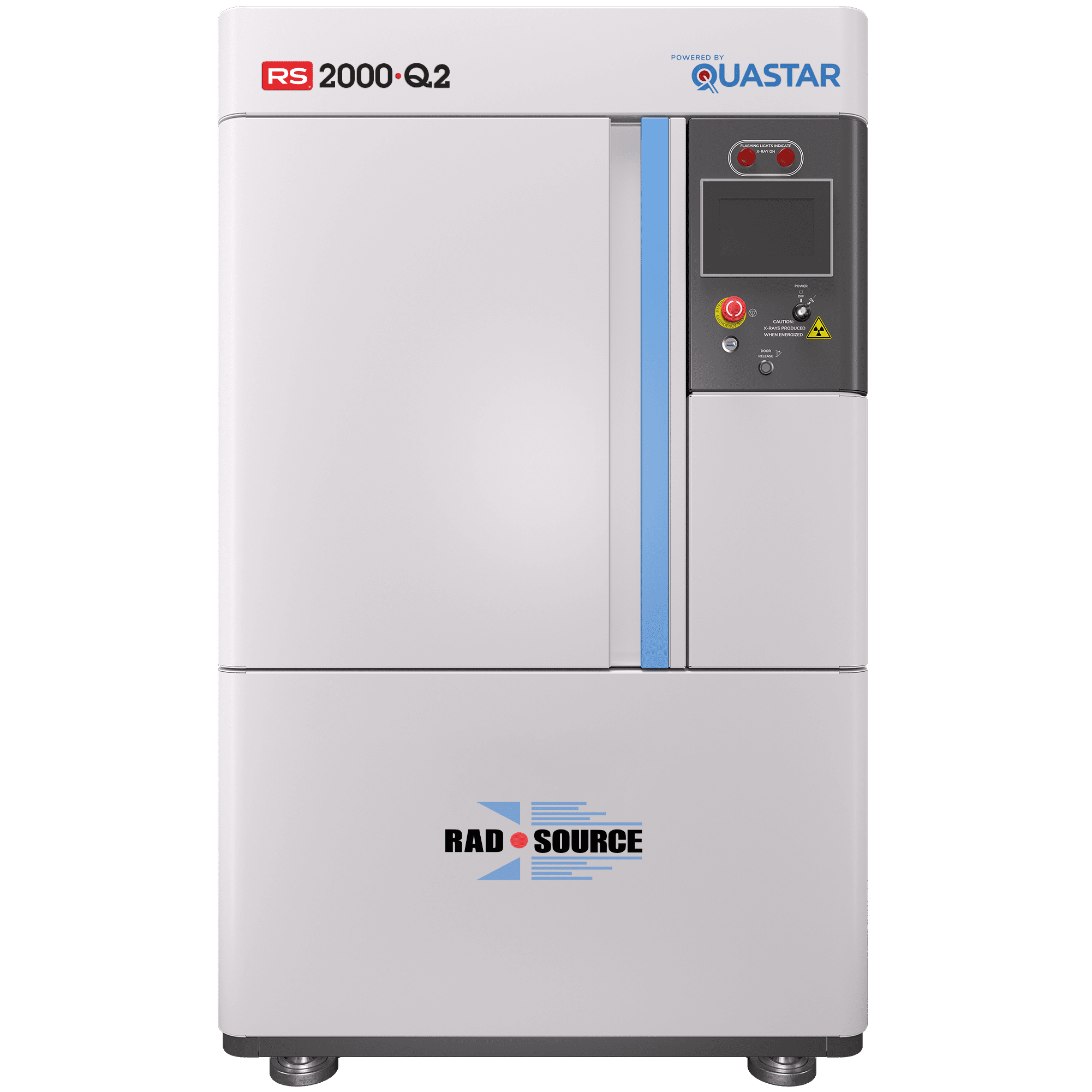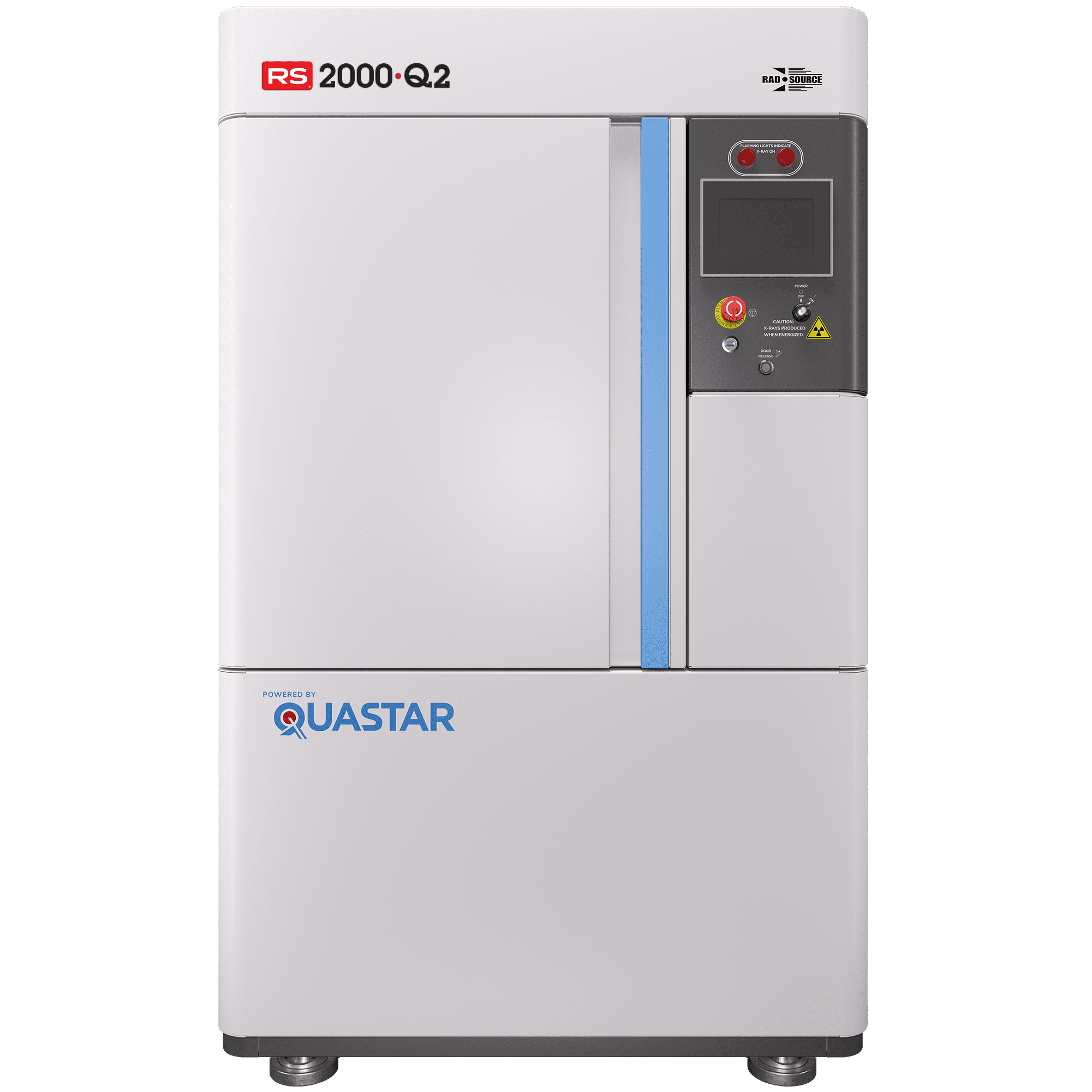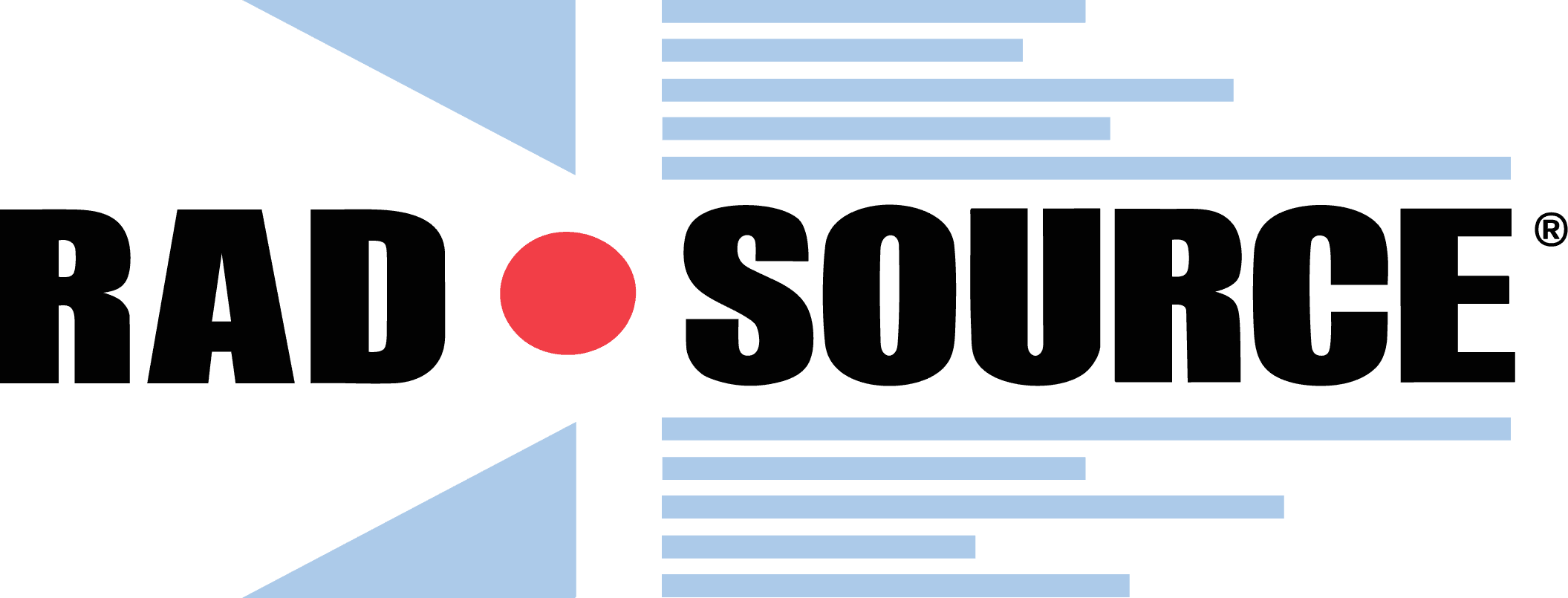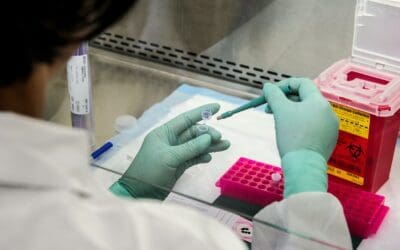
Small Animal Research
The RS 2000·Q2 offers a robust solution for researchers in small animal, stem cell, cancer, and immunology fields. Powered by our 4th generation QUASTAR 2 X-ray platform, it outperforms traditional point source tubes, ensuring superior symmetry, flatness, penetration, and dose uniformity. Delivering energy levels comparable to 320kV tubes, the RS 2000·Q2 also features optional imaging and configurable filters. With RADPlus™ Research Tools designed for enhanced performance and animal comfort, this system runs on a standard 120V outlet and is equipped with caster wheels for easy mobility, making it ideal for any lab environment.

The New Industry Standard for Small Animal Irradiation
The RS 2000·Q2 is driven by the power of our 4th generation QUASTAR 2 X-ray platform, setting a new standard in research for small animal, stem cell, cancer, and immunology studies. This advanced tube technology outclasses traditional point source tubes by delivering unmatched symmetry, flatness, penetration, and dose uniformity. Offering energy levels comparable to 320kV tubes, QUASTAR 2 ensures precision and reliability in every use. With optional imaging and configurable filters, the RS 2000·Q2, powered by QUASTAR 2, is designed to elevate both performance and efficiency in the lab.
Proprietary Quastar® Photonic Decontamination™ Technology
To prepare these laboratory animals for these human-simulated experiments, their original immune system needs to be either weakened or completely destroyed and then reconstructed with human immune cells.
This is achieved through the application of ionizing radiation, and our patented x-ray irradiation technology is the gold-standard for this application.

Multi-level Chamber Exposure System
Developed with a three-level height-adjustable tray exposure chamber allowing for flexible specimen placement. The design allows small animals to be irradiated in their cages reducing cross-contamination and providing a less stressful environment.
RADPlus™ Research Solutions
Patented RADPlus research solutions are engineered to reduce stress on the animal while ensuring beam uniformity of 95% or higher and will not cause skin burns to the animal. Small animals are free to roam their cages for a less stressful environment.
Unmatched Quality Service and Support
With more than 1000 irradiator installs in renowned hospitals, universities, pharma, government and life science institutions worldwide, Rad Source is a proven and reliable x-ray manufacturer with unmatched and trusted services.
Equipment

RS 2000·Q2 Biological Irradiator
The RS 2000·Q2 is designed for small animal, stem cell, cancer and immunology research, and various other applications. Its core is powered by our 4th generation QUASTAR 2 X-ray platform, which offers superior performance to 1st generation point source tubes.
- Industry-leading symmetry, flatness, penetration, and dose uniformity
- Effective energy comparable to 320kV point source tubes
- Optional imaging and the ability to configure various types of filters
- RADPlus™ Research Tools enhance performance and animal comfort
- Does not require a chiller and operates on a standard 120 V wall outlet
- Mounted on caster wheels for mobility
Latest News & Studies
Cancer therapies activate RIG-I-like receptor pathway through endogenous non-coding RNAs
Emerging evidence indicates that ionizing radiation (IR) and chemotherapy activate Type I interferon (IFN) signaling in tumor and host cells. However, the mechanism of induction is poorly understood. We identified a novel...
Cathepsin B and uPAR regulate self-renewal of glioma-initiating cells through GLI-regulated Sox2 and Bmi1 expression
Cancer-initiating cells comprise a heterogeneous population of undifferentiated cells with the capacity for self-renewal and high proliferative potential. We investigated the role of uPAR and cathepsin B in the maintenance of...
Using Nanodot Dosimetry to Study the RS 2000 X-Ray Biological Irradiator
AbstractPurpose: To use NanoDot dosimeters to study the RS 2000 X-ray Biological Irradiator dosimetry characteristics and perform in vivo dosimetry for cell or small animal experiments. Methods and materials: We first calibrated...



